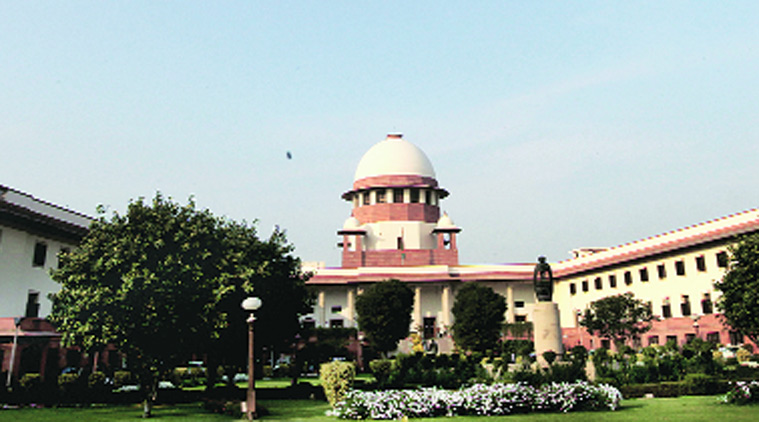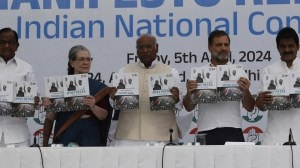- India
- International
For better or for verse, when Sanskrit found vogue in court
For once, English took a back seat in the top court.
 The Supreme Court of India
The Supreme Court of India
English, the official language used in the Supreme Court, had to take a back seat on Friday last week when Chief Justice of India HL Dattu and a lawyer had an intriguing exchange in Sanskrit – mostly verses from Bhagavad Gita.
Advocate M K Balakrishnan had moved the court with a prayer to declare Gita as the national text of India. He said it was one book that could guide a person on how to rise above all the weaknesses and muster courage to do the right thing always. Complaining about the degradation in values, Balakrishnan felt Gita did not have to be dubbed as a religious book since it contained generic lessons that every Indian must read to become a better person.
[related-post]
As a three-judge bench led by the CJI took up his PIL, Justice Dattu recited for Balakrishnan an excerpt from Gita: “yada yada hi dharmasya glanir bhavati bharata abhyutthanam adharmasya tadatmanam srjamy aham.” The passage from Gita quotes Lord Krishna as saying that whenever and wherever there is a decline in virtue, he would descend.
The CJI said: “Things will get right in an appropriate way. There are other ways to correct it. How can we issue a declaration?”
The lawyer responded, reciting two verses: “Vasamsi jirnani yatha vihaya navani grhnati naro ’parani tatha sarirani vihaya jirnany anyani samyati navani dehi.” It meant as a human being puts on new garments after giving up old ones, the soul similarly accepts new material bodies, giving up the old and useless ones. Balakrishnan argued that he believed that in this life, he had a duty to endeavour to make contributions to the society.

While the lawyers and the other judges on the bench – Justices M Y Eqbal and Arun Mishra watched the dialogue curiously, CJI Dattu told the lawyer that he must also remember from Gita that the spirit was imperishable.
“You can kill me but you cannot kill my spirit. There is a small book ‘Old man and the sea’ that also talks about the triumph of indefatigable spirit,” said Justice Dattu.
Balakrishnan pointed out Gita had also summarised this as: “Nainam chindanti shastrani nainam dahati pavakah na chainam kledayantyapo na shoshayati marutah”(the soul can never be cut to pieces by any weapon, nor burned by fire, nor moistened by water, nor withered by the wind).
The CJI then told the lawyer that it was an issue of subjectivity whether a text was considered sacred or spiritual or otherwise by a person. “How can we go into something so subjective? How can we make a uniform declaration when people are free to have different mindsets. This sort of declaration is outside the purview of the court,” he said.
Balakrishnan then tried to convince the bench that the declaration he was seeking for aimed at ameliorating the social fabric and further strengthen it by teaching kids the importance of values and morale.
Not convinced to entertain the PIL, the bench opted to dismiss it but not before the CJI recited one more verse: “Karmanyevadhikaraste ma phaleshu kadachana ma karma-phala-heturbhur mate sangostvakarmani”
Justice Dattu said: “You already know what it means. You have a right to perform your duty, but you are not entitled to the fruits of action. You have done your duty. Thank you.”
Apr 25: Latest News
- 01
- 02
- 03
- 04
- 05








































